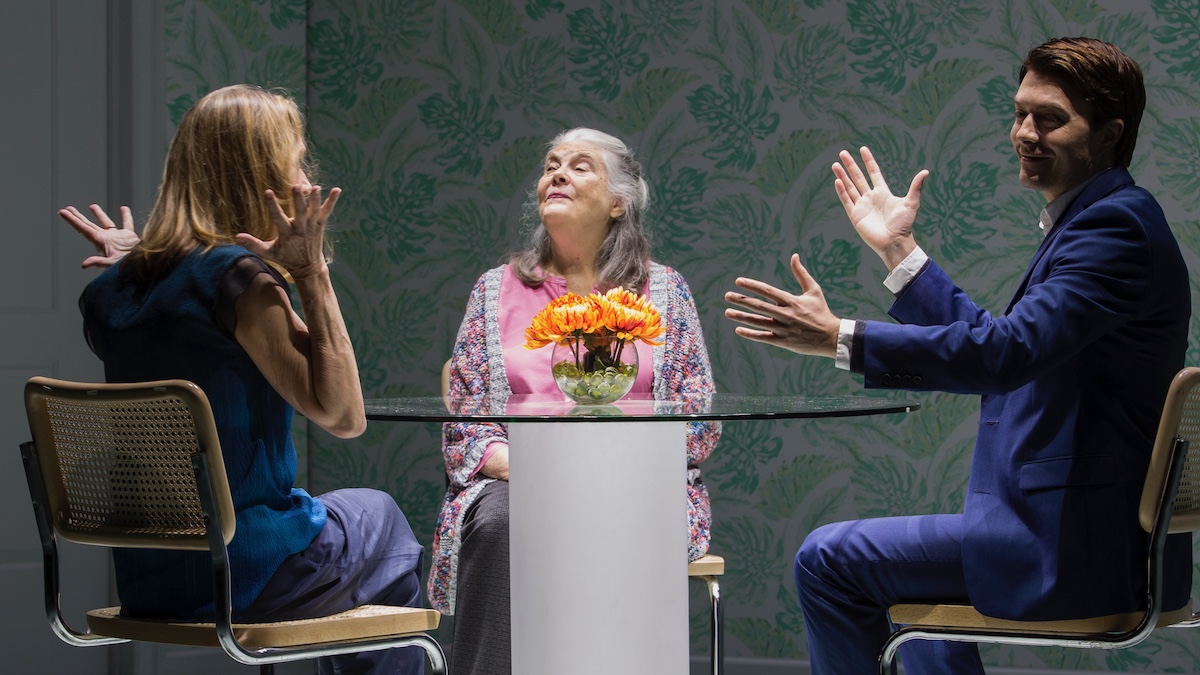
Feedback is an essential part of collaboration; I depend upon it. I am incapable of writing a good play without it, much less a terrific one. There’s no greater gift than when an intelligent and keen theatre artist encounters my work and reflects it back to me in a thoughtful and probing way. More often than not, I improve my plays with each draft. Indeed, the hope of revision is the only thing that gets me through the pain of a first draft. Keep writing, C.T., this steaming pile of shit can be revised!
Undergraduate professors around the country may disagree, but I think we train theatre artists pretty effectively in play analysis. I’ve never worked with a professional colleague who couldn’t speak cogently about character arcs, theme, plot structure, action, theatricality and the like. At the many new play conferences I attend, we speak the same language. We can eloquently articulate why a play isn’t working, or conversely, why it is. The American theatre does play analysis—at least from realism to Brecht—pretty darn well. (We probably struggle more with experimental work, but that’s a subject for another essay.)
So why do I brace myself every time I receive notes from someone new?
It’s because too often we mistake play analysis for new play development, and they are not the same thing. Encouraging a writer to clarify character arcs, add second act plot complications, underline the play’s themes, or more deftly, adhere more closely to the patterns established by the play’s diction will make a play more coherent. It will not, necessarily, make it more exhilarating.
Too often we mistake play analysis for new play development, and they are not the same thing.
Unfortunately, ignoring all the tools of play analysis, refusing to hear any and all notes, and following one’s own impulses at all times also does not make a play more exhilarating. If play analysis can’t always invigorate a new play, then neither can writing in a vacuum of one’s own imagination.
The problem is that while we generally understand how to make a play more coherent, no one really knows how to make a play more exhilarating. If we did, then brilliant seasoned theatre artists would never create flops. There’d be no Spiderman musical or After the Fall (argue with me if you want, but I stand by this assessment: worst Arthur Miller play ever). Whatever makes a play exhilarating comes from the subconscious, and yet not everything from the subconscious is exhilarating. This is the paradox of new play development and, I’d argue, the core of what we’re wrestling with in workshops and rehearsals rooms. We cannot name that which will make a play take flight, and yet we must find that thing (or things) which will make a play take flight.
Unlike play analysis, there are no formulas for new play development. There are, however, some conditions I’ve found conducive to wrestling the paradox, which I’d like to share for your consideration. Your preferred conditions may be different, and I’d love to hear about them in the comments.
1. Rewriting outside of a workshop or performance context has diminishing returns.
This is probably obvious to 100 percent of the people working in new play development but it’s a hard one for me to admit. I really like revising in my room alone. I like the back and forth with a trusted dramaturg or reader, and with the knowledge that 99 percent of theatre gatekeepers will not read my play more than once, I’m nervous about sending the play out too early; however, I’ve yet to meet a theatre artist who can always predict what will work off the page. The unpredictable alchemy of words and performance has to be tested periodically for a play to evolve.
2. My favorite collaborators do all the work of intensive play analysis yet only share about 10 percent of their hard work.
This may seem counter-intuitive. You may believe that diagramming the play in all its gory detail will help the team understand it better and take it to the next level. In an educational setting, you may be right. But if your goal is exhilaration, consider sitting on that diagram. Right braining the dickens out of a play may just deflate the subconscious space where the best work happens. Instead, consider giving a couple of strong, actionable notes intended to encourage the writer to go deeper. Some of the most transformative notes are very simple. What if character X doesn’t appear in the first act at all? Does this scene have to take place in a living room? Such notes, if taken, would transform the whole play (and make your diagram moot in the process).
3. Rumination and experimentation are both valid ways forward when you’re stuck.
Writers have a reputation for not wanting to revise (or so I’m told). There’s probably something to this. There are also plenty of skittish writers who’ve had the experience of losing what’s best about their play in a workshop. The key is to name your intention. Rumination is an essential part of the creative process. Take a hot shower, jog, stand on your head, or—as Liz Engleman advises—get out on the water. You are under no obligation to revise immediately if you don’t have a vision forward, especially in a workshop setting. New play developers really like you to turn in new pages, but new pages don’t necessarily mean the play is getting better. Respect the mull, as my fiction writing friend calls it. Sometimes taking a long walk is the best writing you can do for the day.
Conversely, no harm can come from throwing a bunch of balls in the air and seeing what sticks! You can choose to find the way forward via trial and error. Your old draft will still be waiting for you, if it all comes to naught. You’ll find that your colleagues prefer you experiment, because sitting around while a writer ruminates is not super stimulating. But do what you have to do and tell your colleagues why. Consider inviting them into your rumination rituals. They might enjoy getting in the canoe with you for the day; a really great idea could arrive while you drift in the middle of the lake.
4. If you find yourself giving the same note repeatedly, maybe you’re giving the wrong note. Or, maybe it’s the right note at the wrong time. Either way, stop giving it.
This is a hard one to swallow, I know. Your note is probably a good one! Heck, everyone but the egomaniacal writer agrees with your note! Your note would definitely make the play a whole heck of a lot better if only the stubborn writer would listen!
Here’s the thing: your note may be the essential missing piece of the jigsaw puzzle, and it may come to pass that during previews, the writer finally agrees that your note needs to be addressed and you were right all along and why the hell did she dawdle when she could have dealt with this issue when you first brought it up instead of now when there are lighting cues to fix? But I promise you this: until the writer’s instincts align with your perfect note, the puzzle piece will never fit. You can’t write well to a vision you disagree with, even if that vision is a good one.
It’s also possible that your note is wrong.
In my experience, it’s about fifty-fifty.
5. The subconscious space where creation happens is hallowed ground. Honor it as best you can.
The best, most productive workshops I’ve ever participated in are ones where I, and the people around me, are relaxed, playful, and confident. It has surprisingly little to do with the quality or intensity of the notes I’m given to “move the play forward.” It’s about listening to what’s happening in the room and returning to my desk inspired by my collaborators and confident in my own ability to give them more exciting, metaphorically rich, and complicated things to do.
Creative generation doesn’t need to be protected. It is a constant underground river that does not run dry.
I sometimes feel we’re in a rut with new play development. At every workshop, we sit at the table. We read through. We discuss. We go through each scene asking questions about intention and action—always with the aim of “fixing” the play as quickly as possible. What if we were more intentional about honoring the subconscious space by intertwining that analysis with movement, music, and even silence?
Rather tellingly, when I first wrote this instruction, I wrote “protect” instead of “honor.” Protect your creative space. But that’s where we writers get it wrong. Creative generation doesn’t need to be protected. It is a constant underground river that does not run dry. It is perennial, as sure as gravity. It doesn’t need our defenses. It just needs a little tapping. So when we writers get grouchy and generally unreceptive to your notes, remind us of this fact. Whatever sparked this play in the first place has not gone away; indeed, it can’t. It is always within.
To browse Catherine Trieschmann’s published titles, click here.

Inspired by True Events: A Conversation with Playwright Ryan Spahn

Plays About Technology

